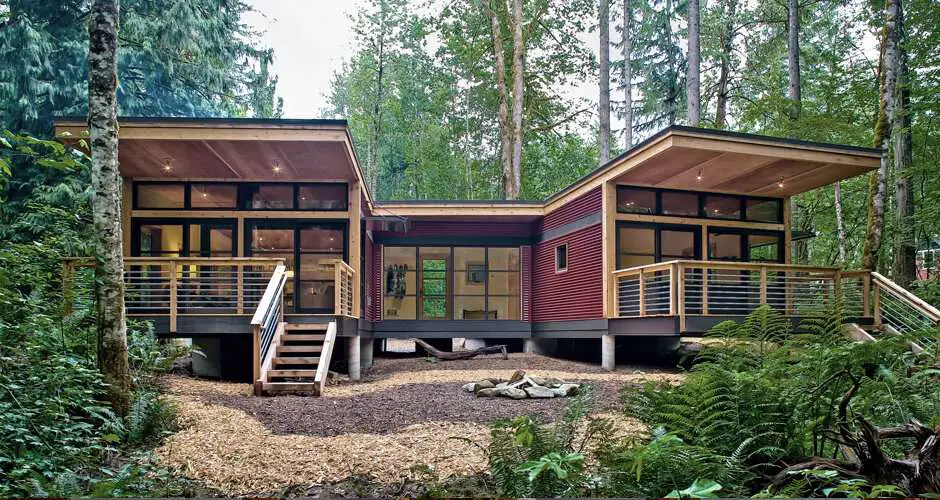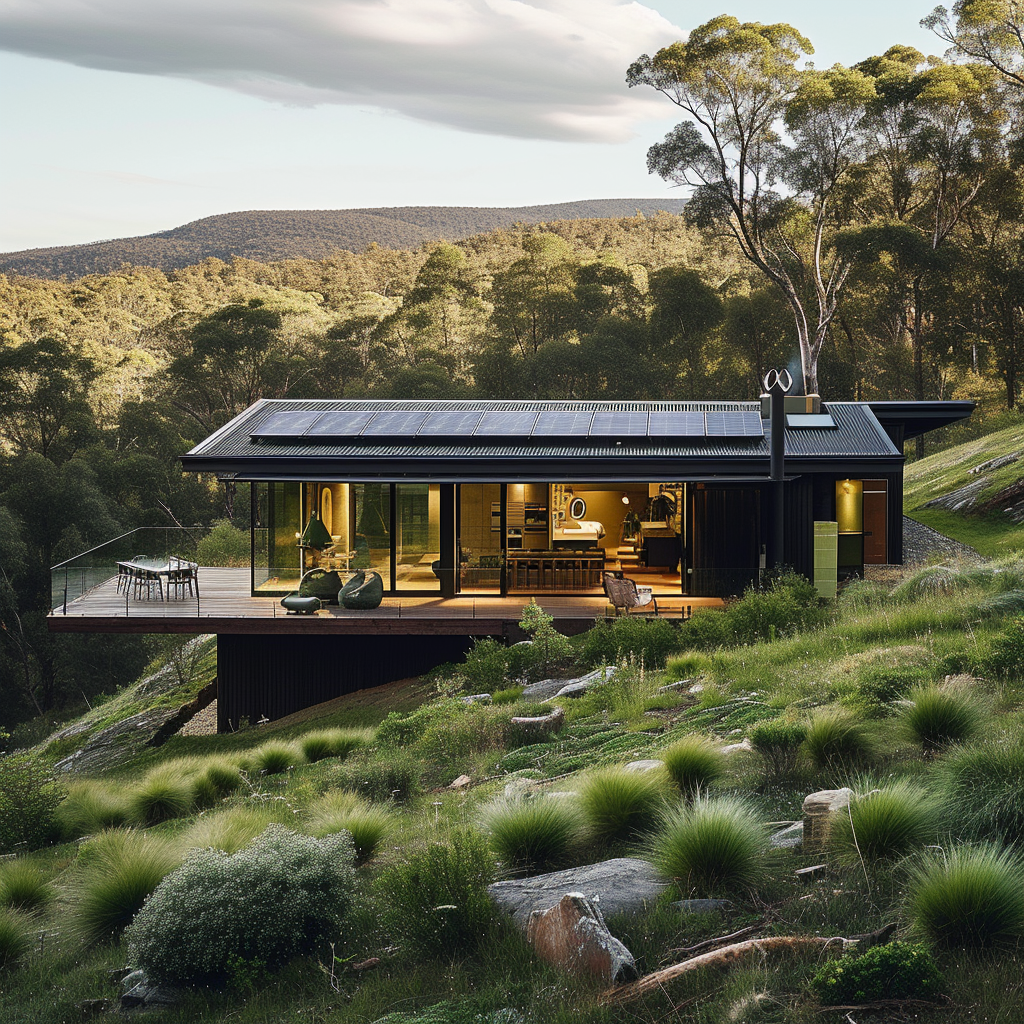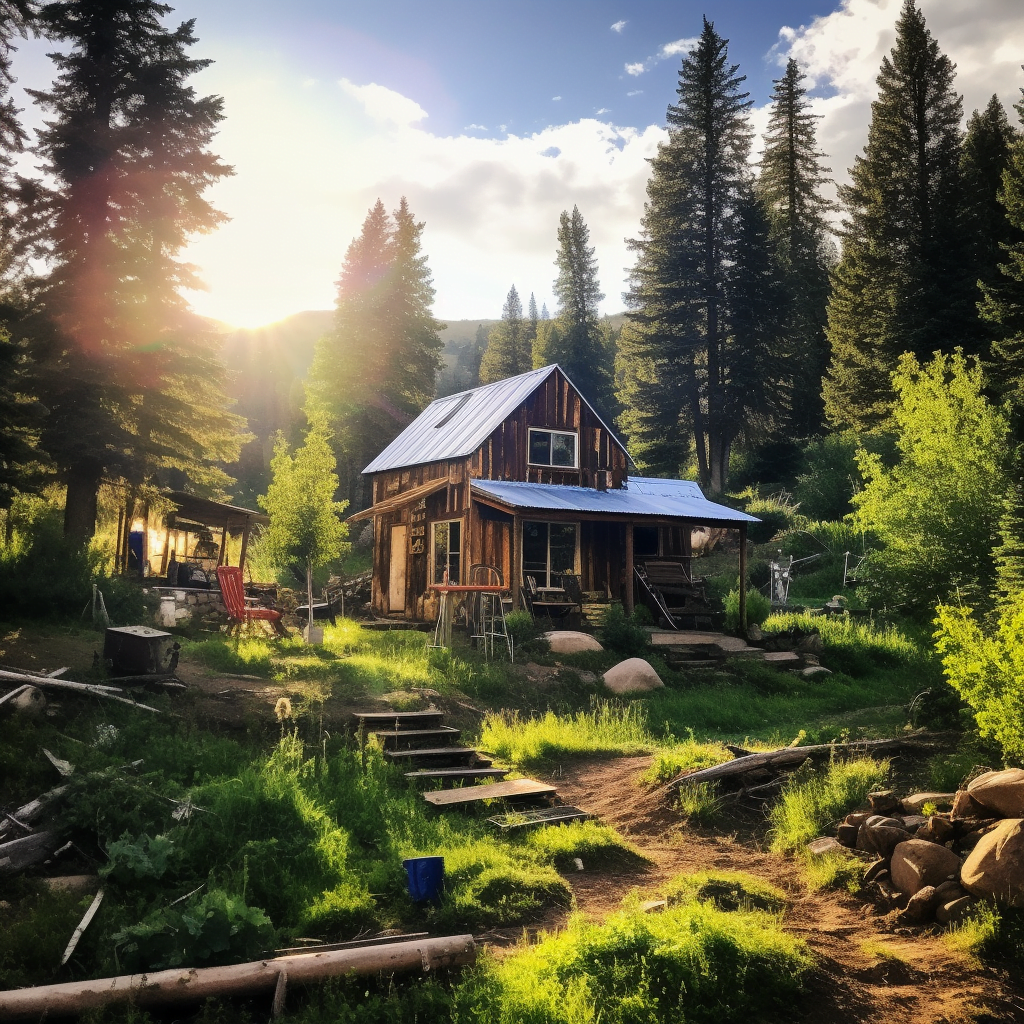Looking to build your own home but hesitant about the cost and complications of traditional houses? Look no further than modular homes. These innovative structures are rapidly gaining popularity as a cheaper and easier alternative to their traditional counterparts. But before you dive into the world of modular homes, there are a few factors to consider. First, ensure that the land you purchase is zoned as residential, as agricultural land won’t be suitable. Additionally, it’s essential to check with the local county to confirm if a modular home is allowed on the land, minimum size requirements, and whether a permanent foundation is needed. Access to utilities is another crucial aspect to consider, as you’ll need to calculate the cost of utilities if they’re not already available on the land. Moreover, it’s important to understand that modular homes and manufactured homes have different building standards and codes. So make sure to do your research and assess the suitability of the land for modular construction, considering local regulations and permits. Lastly, evaluate the location of the land in terms of its proximity to amenities and your desired lifestyle preferences. And if you’re a foreigner looking to buy land in the US, be aware of any regulations and restrictions that may apply and consult legal professionals specializing in international transactions. With these key points in mind, you’ll be well on your way to making an informed decision about purchasing land and building your dream modular home.
Land Considerations
When it comes to buying land for a modular home, there are several important factors to consider. These considerations will help ensure that you find the right piece of land that meets your needs and is suitable for building a modular home.
Zoning
One of the first things you need to check when looking for land for your modular home is the zoning regulations. It is crucial that the land you purchase is zoned for residential use. Agricultural land, for example, is not suitable for building a modular home. Zoning regulations will determine what types of structures are allowed on the land and what restrictions or regulations may apply.
Local County Requirements
In addition to zoning regulations, it is also important to check with the local county to understand any specific requirements they may have for modular homes. Find out if a modular home is allowed on the land you are considering, as some areas may have restrictions or minimum size requirements for modular homes. You should also inquire about whether a permanent foundation is needed for your modular home, as this can impact the cost and feasibility of your project.
Access to Utilities
Another crucial consideration when buying land for a modular home is access to utilities. Modular homes, like traditional homes, require access to electricity, water, and sewage systems. It is important to determine if these utilities are already available on the land or if you will need to have them installed. If utilities are not readily available, factor in the cost and logistics of connecting them to the land. This can impact your overall budget and timeline for building your modular home.
Size and Shape of Land
Consider the size and shape of the land you are looking to purchase. Think about how much space you need for your modular home, any additional structures you may want to build, and outdoor amenities you desire. The shape of the land can also impact the layout of your modular home and any future expansion plans. It is important to find a piece of land that can accommodate both your immediate needs and any future growth or changes you may have in mind.
Road Access
When evaluating potential land for your modular home, consider the access to roads. Accessible roadways are essential for transportation, deliveries, and emergency services. Take note of the condition and proximity of nearby roads, as well as any easements or shared driveways that may be relevant. Adequate road access ensures convenience and ease of living in your modular home.
Financing Options
Financing is a crucial aspect of purchasing land for a modular home. Before starting your search, explore different financing options available for land purchases. This can help you determine your budget and assess what is realistically affordable for you. Some lenders specialize in land loans, while others may offer construction loans specifically for modular homes. Researching financing options will give you a clearer understanding of what you can afford and help you make informed decisions throughout the process.
Assessment for Modular Construction
Before finalizing a land purchase for your modular home, it is important to conduct a thorough assessment of the land’s suitability for modular construction. Consider factors such as soil conditions, drainage, and any potential environmental concerns. Engaging professionals like engineers or surveyors can help you evaluate these aspects and ensure that the land meets the necessary requirements for a safe and stable modular home.
Researching Regulations and Permits
Every region has different regulations and permitting requirements for building a home, including modular homes. Take the time to research and understand the applicable regulations and permits in your desired location. This includes building codes, zoning restrictions, and any specific requirements for modular construction. Compliance with these regulations is essential to avoid any legal or logistical issues during the construction process.

Location Proximity to Amenities
When choosing land for your modular home, it is important to consider the location’s proximity to amenities. Think about the distance to grocery stores, schools, healthcare facilities, and other amenities that are important to you. Assess the accessibility of these amenities and how they align with your desired lifestyle. Finding a location that meets your needs and preferences will contribute to your overall satisfaction and quality of life in your modular home.
Foreign Ownership Considerations
If you are a foreign buyer looking to purchase land in the US for your modular home, there may be additional considerations to keep in mind. While foreigners can generally buy land in the US, regulations and restrictions may apply. It is advisable to consult with legal professionals who specialize in international transactions to navigate any complexities or requirements that may arise.
Taking all of these land considerations into account will help you make informed decisions and find a suitable piece of land for your modular home. Remember to thoroughly research and evaluate your options to ensure that you find the perfect location that meets your needs and supports your vision for your modular home. From zoning and local county requirements to utility access and financing options, each factor plays a role in the successful purchase and construction of your modular home.




